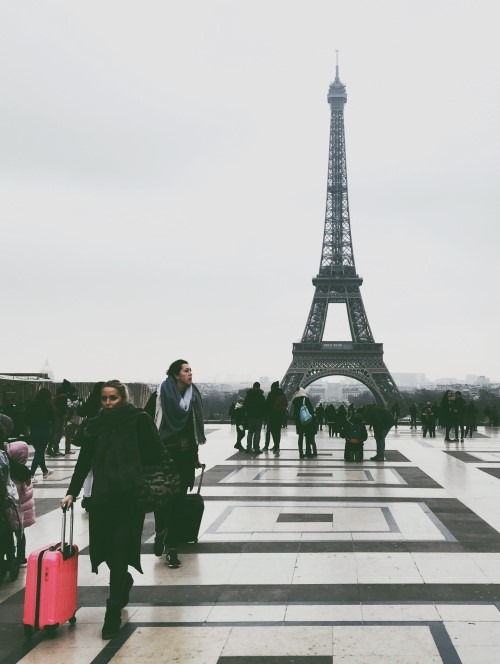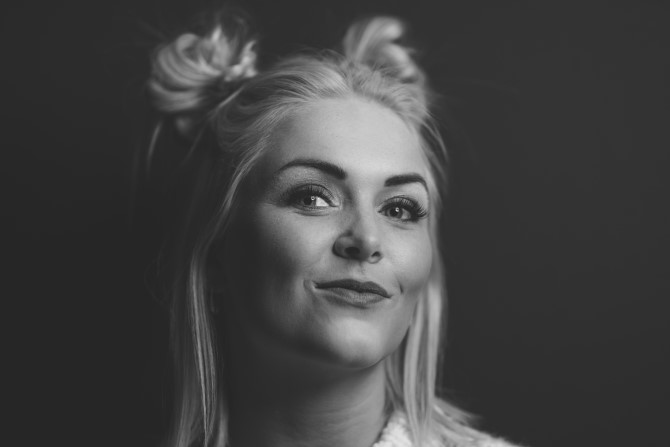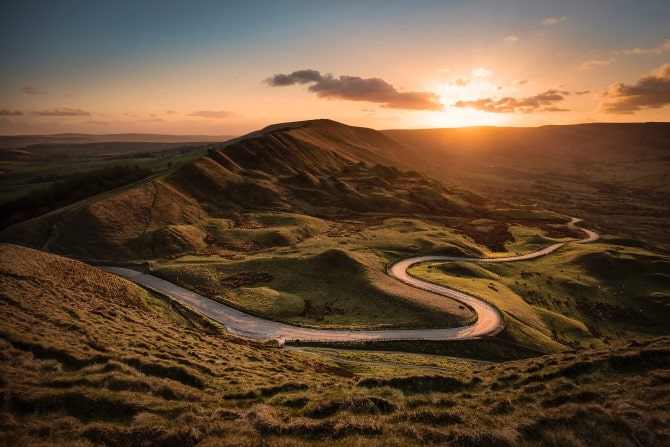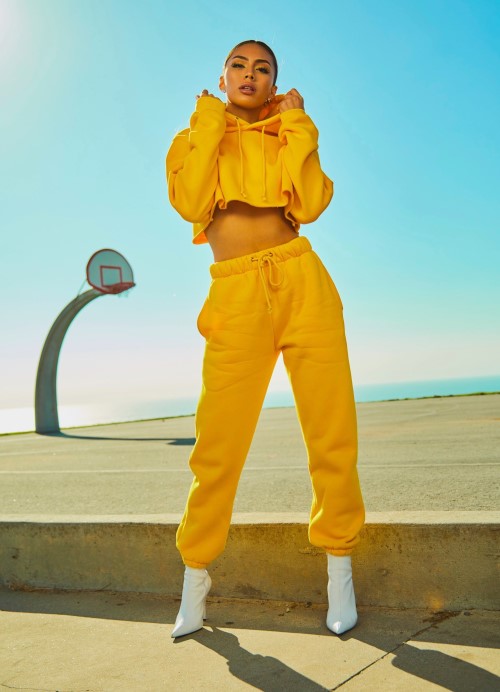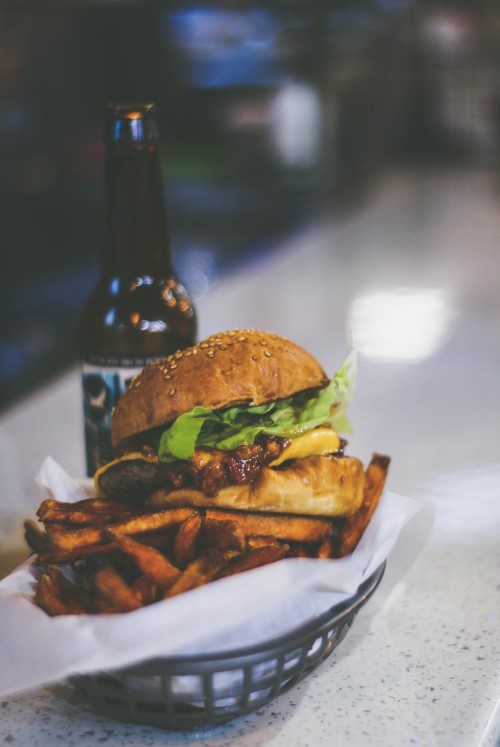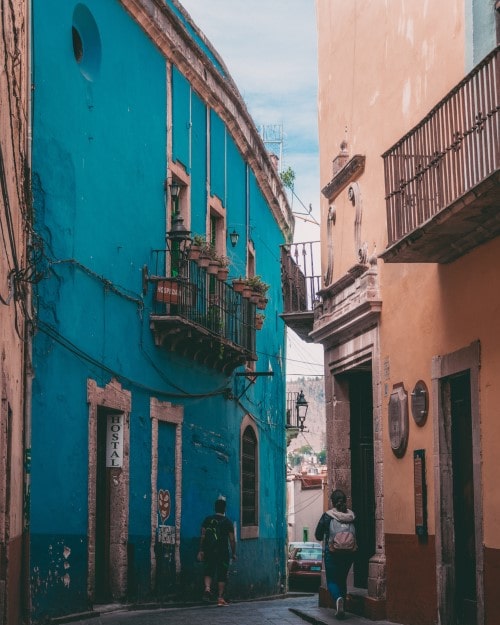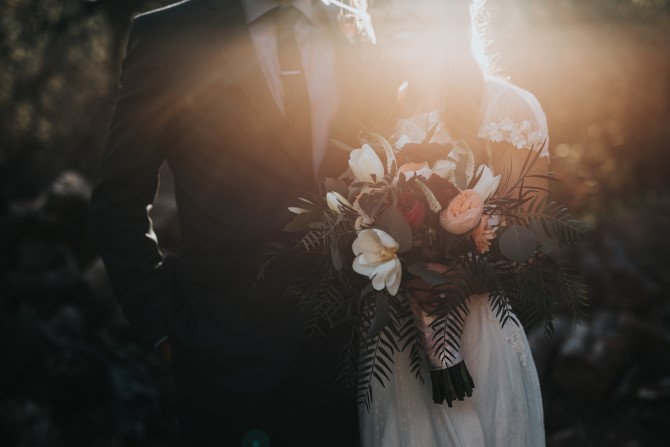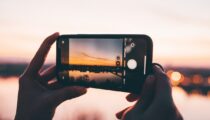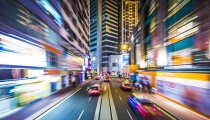There’s so much to explore in the world of Instagram,…
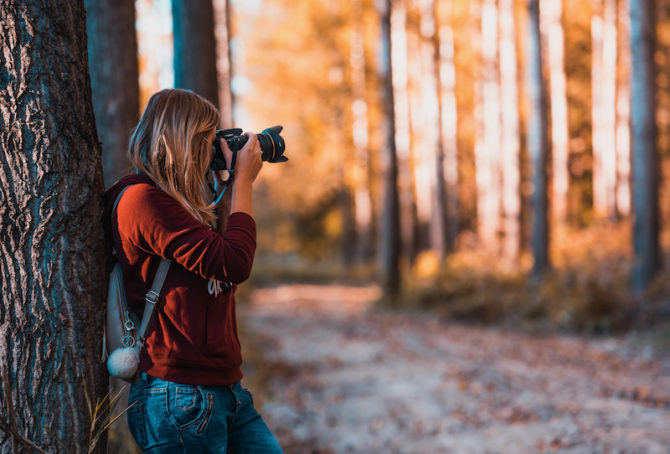
Photography for Beginners
Most of us can take a selfie. But do you ever wish you had the skills to photograph your family and friends and create beautiful memories? Do you ever come home from a holiday wishing your photos did your trip justice? While creating professional photography can take years to properly master, it’s easy to conduct an amateur photo shoot if you have an understanding of photography for beginners.
With a basic understanding of photography, you can photograph those all-important moments in a way that perfectly captures the emotions of a moment, event or trip, in just a single photograph. From there, you can use those photos to create beautiful gifts.
You don’t even need the best camera out there. Most modern phones can take a surprisingly good photograph. All you need is a knowledge of basic photography guidelines and an understanding of the various styles of photographs. Portrait photography can vary dramatically from landscape photography, and the way we photograph people is different from how we would approach street photos or travel photos.
To help you take amazing photos, we’ve compiled some of the most popular styles of photography for beginners. We’ll show you just how to approach them to get the best photograph, and what to look out for to avoid your photos turning out badly!
The perfect travel photograph
The key to the perfect travel photograph is timing. And timing can be difficult when you’re travelling! Not only do you often have to contend with crowds of people and a jam-packed travel agenda, but you’re also battling stress and the uncertainty of the unknown. You can’t plan for your location because often, you’ve never been there.
That’s why it’s so important to get there early. If you know you’re heading to a location that will be busy, get there as early as you can to beat the crowds. The best light for taking an outdoor photograph is referred to as “the golden hour”; approximately one hour after sunrise and one hour before sunset, due to the soft, warm light that will give your photos the perfect blend of light and shadowing. Trust us, the early bird really does get the worm best photograph in this case!
A crowded marketplace or quickly setting sun over a picturesque lake is also not the time to try to learn to use complicated photography equipment. Learn how to use your equipment at home before you go away, or you could miss the perfect shot just trying to get the lens cap off your new camera!
It’s also best to take a camera that is practical. Too large and chunky, and you’ll end up just leaving it in your hotel and whipping out your iPhone instead.
Map out where you will go before you leave for the day, or better yet; the night before. You could even research photography spots in your city, or check Instagram or Google Image Search to find the best photographs, then aim to replicate them!
Portrait photography
Portrait photography can be tricky, and, unlike a photograph of a landscape or still object, it depends so much on the subject and your direction. There are a few simple tricks, however, to creating amazing portrait photography.
Firstly, think about the context of the shot. Consider what the shot is for, and how much context needs to be shown in the frame. For instance, if you’re on holidays, perhaps you want a shot from the waist up, so you can show the subject’s face and body language reacting to the beautiful backdrop? Or maybe it’s a corporate shot and you want an image that purely shows the face and top of the shoulders?
For a beginner, shooting outside can be easy if you choose early morning or late afternoon hours; just watch the sun around noon as it can change quickly, making it difficult to control the effects of the light. You can also shoot inside, but you’ll probably need lighting equipment to create a controlled environment so you have the perfect light for shooting.
To get the perfect shot, try a variety of angles. Get on the subject’s level for a straight-on shot, get down low and shoot up, or even try a shot from higher up looking down. The key is experimentation. Focus on the eyes is important as, as they say, eyes are the “windows to the soul” and can evoke a powerful emotional connection for your photograph.
Black and white shots work very well in portrait photography and can make for a timeless and sophisticated portrait shot.
Landscape photography
Creating stunning landscape photography can give you a great excuse (not that you needed one) to explore new locations and travel. Spending more time in a location generally allows you to see things from a different perspective.
Shooting landscapes means that often, there is a lot more detail to capture. Shooting images in RAW as opposed to JPEG means that you can capture all that extra detail. The RAW file size is much bigger so you’ll need to ensure you have adequate file storage space, but the difference in results will amaze you. You’ll also need to have the correct software to edit your RAW images so it’s worth looking into this prior to shooting.
It helps to have a tripod for landscape photography. This will ensure you can take long-exposures without shaky hands creating blurriness in the photograph. It also makes it much easier to fiddle with your camera settings so you can take your time getting the perfect shot. You can now get a range of lightweight and affordable tripods to use anywhere. All you need is a place to set up.
Fashion photography
For fashion photography, many of the tips covered so far still come into play. The right location and lighting play a large part in ensuring that you get the right shot.
It may seem obvious, but with fashion photography, what you really want to focus on is the outfit. This might mean the outfit as a whole, but, depending on the purpose of the photo shoot, it might also be worth shooting different aspects of the outfit, such as close ups of accessories like shoes, handbags, belts or jewellery.
You’ll also want to consider the colours of the clothes and how these will fit in with your background, particularly if shooting outside. Do the clothes blend in with the background, lose their edge and get lost in the business? Or do they pop?
Like portrait photography, the model’s expression and stance are key to getting a natural looking shot that doesn’t take away from the outfit itself, yet emphasises it. A strong pose will create a powerful photograph, which complements the clothes or accessories.
Food photography
We’re all used to taking photos of food for Instagram, but if you want to up your food photography game, read on. The nature of food means that you only have a quick window to get a great food shoot of those fresh fruits, the sauce oozing out of your sticky date pudding, or that perfect ice cream cone before it ends up a dripping mess in your hands.
The important thing to remember is that most kitchen lighting will add a yellow tinge to your food photos. To keep things fresh and white, either shoot in natural light or, if not possible, use the Tungsten setting on your camera. You can also edit your images afterward to tone down any yellows. Think about in which direction you want the light to come from.
The angles are equally important when shooting down. You can shoot from top down; great to capture bigger, share-style meals and get some slight context in the setting; for instance, cocktails, menus or other props. You could try a 45-degree angle; the way food looks as if you’re about to eat it. This works well to show texture in food. Then, a straight on angle can show height or layers, great to show stacked cookies, sandwiches, burgers or layer cakes.
For the finishing touches, add props or garnishes, if available.
Photographing your pets
You can never have too many pet photos. But how do you nail pet photography so you don’t have to put your pet through the torture of what amounts to a mini photo shoot every other week?
Like humans, there are multiple styles of shots for your pets; “portrait” style, action shot, candid or posed. First, consider the breed of dog, cat, or other species your pet is. Longer animals like sausage dogs or horses may be difficult to capture in full, and it may take longer experimenting with different angles to get the right shot.
Set up your shot beforehand. If inside, move any other erroneous items or junk from the room or space. If outside, ensure there won’t be any distractions like other dogs or kids running around. Bring your pet’s favourite toys as props and to make him feel comfortable.
Remember to get down on your pet’s level and try to shoot from the point of view of their world. That might mean getting down on the grass or dirt, shooting your cat lying sprawled out from above, or even placing the camera on the ground.
Don’t forget to bring treats to reward your pet for being such a good model!
Street photography
The essence of street photography is truth. You need to want to photograph the honest realities you see before you without caring what people think but also being respectful of people’s privacy.
Street photography is usually done candidly and often without people’s permission, however that doesn’t stop you from asking permission to take a more staged shot if you find an interesting model. When you do this, be respectful, tell your subject you think they look great, and you’d love to photograph them. Don’t be afraid to take more than one shot if you don’t get it right the first time. Use the same rules you would for your other portrait photography and try to capture the raw essence of the characters you meet in their natural environment.
Consider the interesting lines and shapes that cities and architecture can create and, like nature, try to capture moments as they are, instead of waiting for a moment to create itself. If the city is busy and hustling, capture that feeling.
Street photographs aren’t meant to be pretty; don’t be afraid to capture the dirty, the gritty and the downright ugly on the streets. It’s all an honest reflection of what you’re seeing.
Black and white is a great option for street photography, just ensure that you use light and shadows to your advantage to get the perfect photograph.
Wedding photography
Wedding photography is not a one-person job. At any one time during a wedding, the bride and groom will be having special moments, guests could be breaking down on the dance floor, and the bride’s mum is having a heart-to-heart with the flower girl.
You need multiple photographers or videographers to capture all this, or at the very least, an assistant, but if you’ve never shot a wedding before, going alone is not a good idea as you’re sure to miss some crucial shots. After all, a wedding only happens once; for most of us, anyway.
The lucky couple might want standard wedding photos, or they may want to get a set of unique wedding photos to express their unique relationship. Either way, it’s important that wedding photos show all the various emotions experienced at the wedding; love, sadness, friendship, and the hope and happiness that comes with starting a life with the one you love.
Planning is key for wedding photos and there are many considerations you’ll need to think about. It’s important to know where the wedding will be held and scope out the site beforehand. Where will the bride be entering from, and at exactly what time? In what sequence will the bridal party come out? Shoot the special “first” moments; the kiss after the vows, the first dance, and leaving the reception together.
The photo shoot usually held in between the wedding and reception is a great time to relax and get a range of beautiful shots, and this should be well planned in advance. If in a different location to the wedding, scope this area out prior to the wedding as well.
In terms of the guests, crowd reactions are golden. Reactions during vows and speeches can be hilarious, or heart-melting, and you don’t want to miss a moment.
So, there you have it; how to nail the most popular photography styles. Do you have some beautiful photos you’d like to remember? Don’t leave them stuffed in a draw or forgotten on your phone. Visit us here online when you’re ready to transform your photos into stunning, high-quality canvas prints or gifts.

